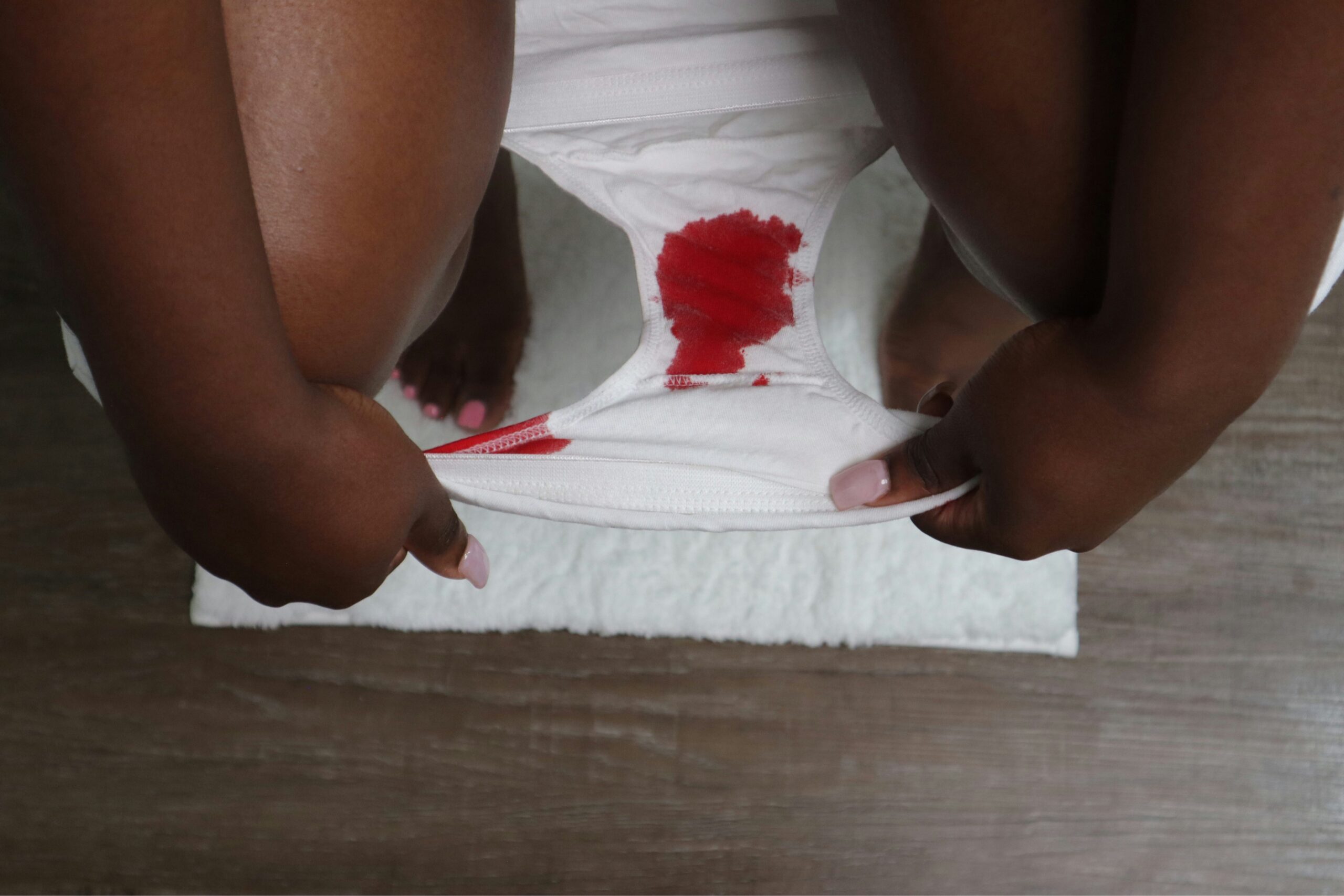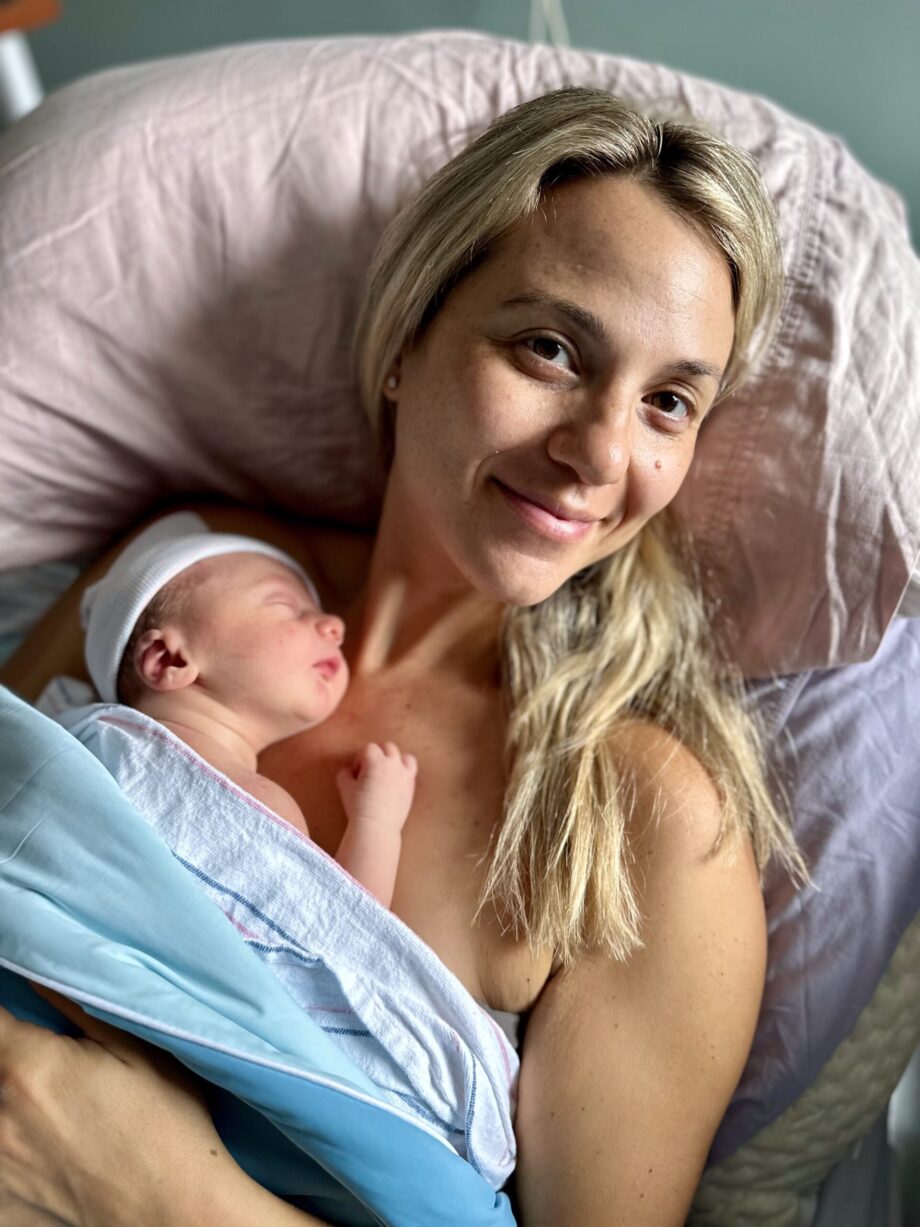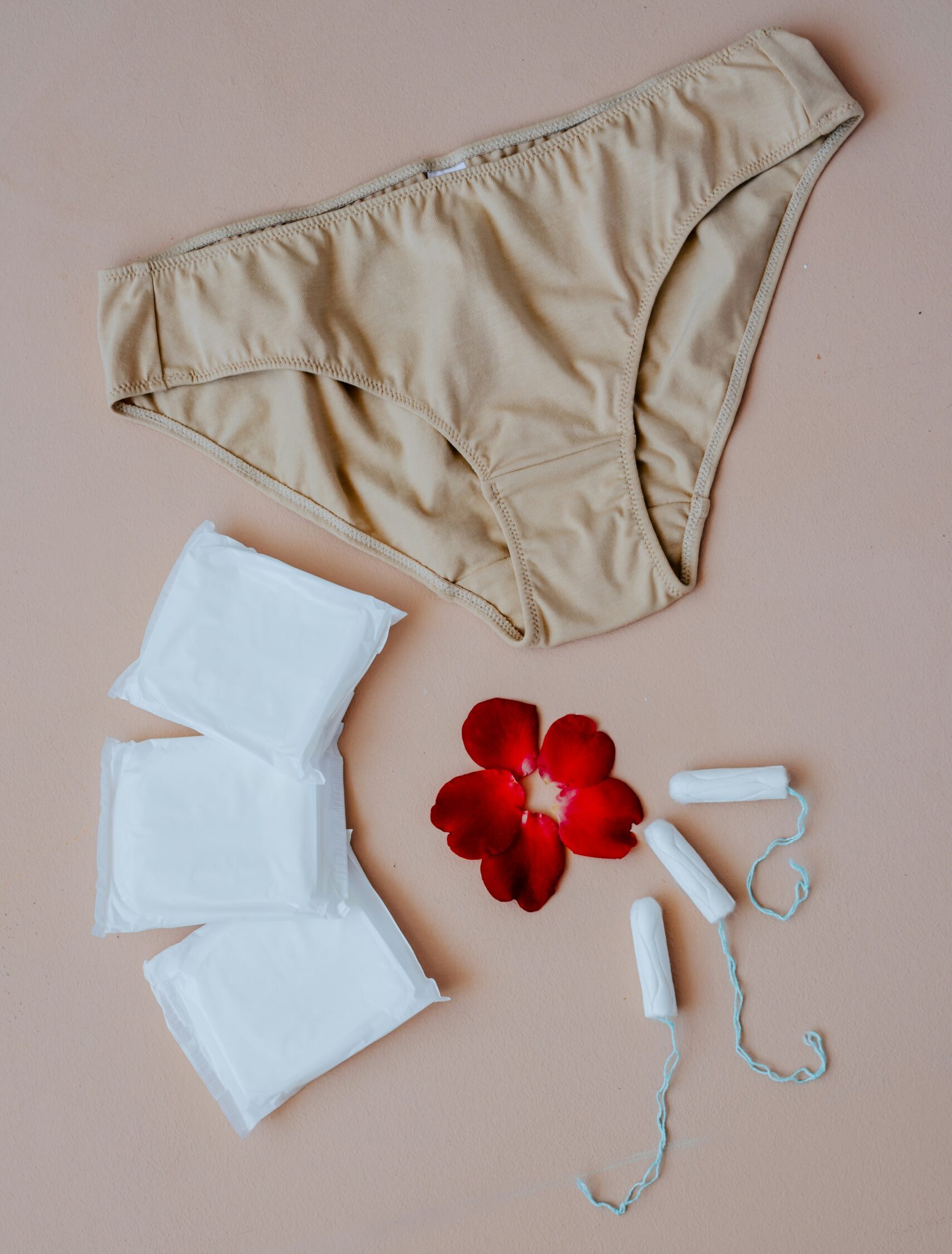Many new mothers don’t have the mental space to even consider what the first period after birth will be like. After all, for close to a year, you haven’t had to worry about the date on your calendar circled in red signaling your monthly visitor. The timing of your menstrual cycle’s return varies for everyone— from a few weeks and months to more than a year following childbirth.
No matter when your first period post-pregnancy arrives, it can feel like an unexpected guest that surprises you. You’re already juggling so much with your newborn and adjusting to postpartum, so it can feel like yet another thing on an endless list of things you must deal with.
Your first period postpartum is different for every mother. You might notice a change in your flow, intensity, length of your cycle or what type of PMS symptoms you have. For some moms, your period might feel the exact same as it did pre-pregnancy, but if we are being honest, that’s pretty rare.
One of the main questions you might be asking yourself is when your period will actually start again? Without being able to track ovulation, it can be hard to know or predict, and it depends on a lot of factors, like your hormones, breastfeeding or how your body is adjusting with postpartum hormones.
“The postpartum period is the whole first year postpartum. Your hormones are fluctuating, your brain is literally creating new neural pathways, you are recovering physically, emotionally, and mentally, and you are going through matrescence—it’s a lot,” Dr. Jessica Vernon, MD, PMH-C, and board certified OB/GYN, said.
Whether you’re already postpartum and awaiting the arrival of your first period or you’re still pregnant and want to be prepared, here’s what to expect:
- Understanding the First Period After Birth
- Factors Influencing the First Period After Birth
- Common Concerns and Questions
- When to Consult a Healthcare Professional
Understanding the First Period After Birth
Understanding the timeline behind your first period after birth can help you prepare for its arrival. Knowing what to expect physically and emotionally beforehand is so important.
What to Expect Physically
Technically, your first period can return as soon as four to six weeks after you give birth. But for many women, it’s several months before any resemblance of a normal cycle appears. When your first period after childbirth finally does make its arrival, don’t be surprised if it feels different than what you remember your periods feeling like. Many women might find that their flow is heavier, their cycle lasts longer or they are feeling more painful periods after having their baby. This is normal! For some women, their periods might actually improve or stay the exact same as they were pre-birth. Everybody is different, so expect your period to change in either direction.
Emotional and Hormonal Factors
With your first period postpartum, the emotions that come with it are no joke. Your hormones are trying to adjust after pregnancy, and with your first period, these hormones can impact your mood and emotions more than they did pre-birth. You might feel more sensitive, irritable, anxious or even angry as your first period comes. But feeling these ups and downs in your mood is super common. Lean on your loved ones for help if you need some time to yourself. Whether it’s to help with the baby so you can take a long shower or having someone pick up your groceries or dinner, it can make a big difference in your body and mental health.

Factors Influencing the First Period After Birth
So why does the time of your first period after birth vary from mother to mother? Well, it actually depends on a few different factors. Here, what to consider before getting anxious about your cycle.
Breastfeeding and Menstrual Cycles
“If you bottle feed, or combine bottle feeding with breastfeeding, your first menstrual cycle can occur as early as six to eight weeks postpartum. If you exclusively breastfeed, without any bottle feeding, your first menstrual cycle can be delayed until you start to reduce breastfeeding,” explains Dr. Lindsay Fader, pelvic floor expert, women’s health specialist, a doctor of physical therapy and an exercise physiologist, said.
This is because of the hormone prolactin, which is increased during breastfeeding as it helps with milk production. Prolactin can delay ovulation, which in turn delays your menstrual cycle. You might not even get your period until you start to introduce solids to your baby’s diet or start to reduce the number of times you feed.
Lifestyle and Health Considerations
Your lifestyle and factors like stress, diet and exercise can also impact the menstrual cycle return. Take stress for example. If you’re feeling emotionally overloaded and on edge, your hormone levels can delay your period. If your diet, amount of physical activity and sleep are poor, it can also lead to hormonal imbalances that will affect your cycle.
There’s no reason to put unneeded pressure on yourself to return to an old routine or limit yourself from indulgent foods that give you comfort when you’re adjusting to your new life as a mother. To support general (and menstrual) health, just make sure you’re eating a balanced diet, drinking plenty of water and doing gentle exercises, like walking, when you feel ready. There’s absolutely no rush. Small lifestyle changes can help you in your postpartum journey and help your body regulate your hormones as you heal.
Common Concerns and Questions
We know you might have some questions about what your period will look like after pregnancy. There’s a few ways it differs from what your period looked like before pregnancy.
Differences from Pre-Pregnancy Periods
Your period might come back longer, heavier, or more painful than it was pre-birth. This can be caused by the larger uterine cavity after birth, which causes more of the endometrium, the lining of the uterus, to shed. Again, some mother’s periods actually improve or stay the same. So, no matter what happens, there’s usually nothing to worry about.
However, a few conditions may cause more problematic postpartum periods. Structural defects, adenomyosis and an overactive or underactive thyroid disorder can all affect your cycle. If you ever feel like something isn’t normal, it is better to go to your healthcare provider and ensure everything is fine.
Managing Discomfort and Symptoms
There are a lot of ways to manage the changes you’ll face. If you’re feeling cramps, bloating or other PMS symptoms, you’re not alone. Sara Haley, an AFPA pre-and-postnatal exercise specialist, shared her top recommendations for managing discomfort during your period:
- Hydration: Stay hydrated by drinking plenty of water, around 95 ounces, to help reduce bloating or herbal teas like chamomile or peppermint to help soothe cramps.
- Gentle exercise: Low-impact movement, like walking or yoga can help increase blood flow and release endorphins which can help ease cramps.
- Heat: Use heat therapy with a heating pad or take a warm bath to relax muscles and reduce cramping. (Just make sure to check with your doctor on the safe timing to return to bathing after giving birth to reduce the risk of infection.) Put on your favorite show and enjoy.
- Rest: Prioritize rest and sleep because it will help balance your hormones, including those that influence your mood and pain levels, like cortisol and melatonin. Lack of sleep can increase your irritability, making cramps and bloating feel even worse.
- Medication: Acetaminophen, Tylenol, Advil and other over the counter medications can be taken to help reduce pain.
Don’t forget to also avoid foods that bloat you and tay away from extra salty foods, eat potassium-rich foods, which have been proven to help with PMS symptoms.

When to Consult a Healthcare Professional
So, how do you know when something is just a period of pain or if it’s something you need medical help with? There’s a few things you should look out for in case you need to seek help from a medical professional.
Recognizing Signs of Complications
If you’re experiencing super heavy bleeding, going through a pad every hour the whole day or you’re noticing a large clot in your first period after birth, it’s important to contact your doctor right away. You might have an infection or another condition that needs immediate treatment. Even if you’re on the fence about something being wrong, it is better to be safe than sorry about your health. Other signs of complications could be dizziness, loss of vision, a persistent fever or fainting. Trust your gut when it comes to this.
Regular Checkups and Monitoring
Remember to attend your regular postpartum checkups to monitor your recovery and address potential concerns. During these appointments, you can also have your doctor answer any questions you may have, which can provide you with more reassurance and knowledge to feel prepared for what’s to come. You can also go over breastfeeding, how your body is adjusting post-birth and ensure that you’re healing properly.
Your first period after birth is a different experience for every mother. It’s normal to experience heavy bleeding, longer cycles or other PMS symptoms. You can manage these with the right diet, exercise and hydration. But if anything seems out of the ordinary, contact your doctor immediately. Tracking your ovulation after you get your first period can also help you get back into turn with your body. Lean on your loved ones if you need help. With the right knowledge and approach, you can confidently navigate your first period after birth.
Author
-

Esha Minhas is a third-year student at Northeastern University studying Journalism and Political Science. She's currently the editorial and social intern for Mila & Jo Media. Esha is also the Deputy Sports Editor for The Huntington News and covers Northeastern men's hockey. When she's not busy with work or school, you can find her at the gym, baking for her friends and family and watching anything sports related.
View all posts




